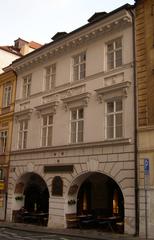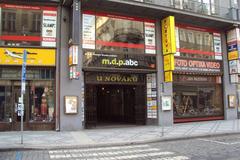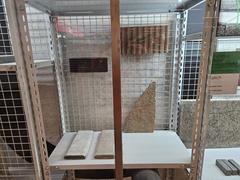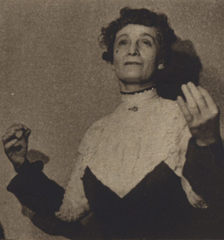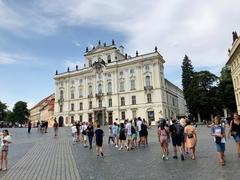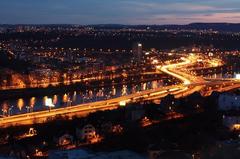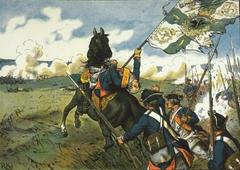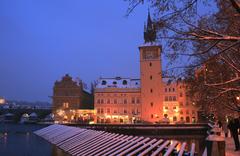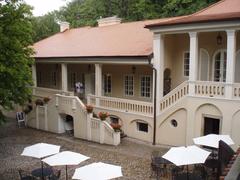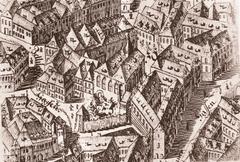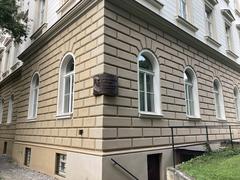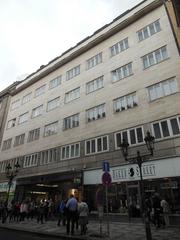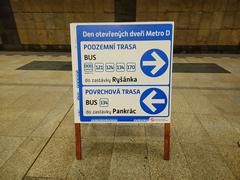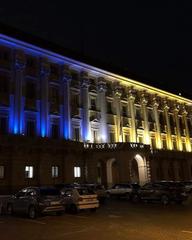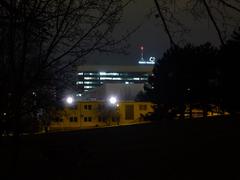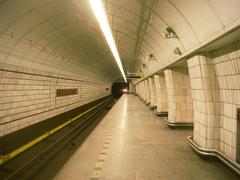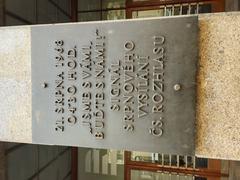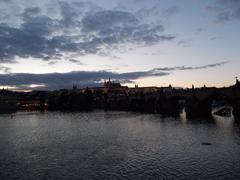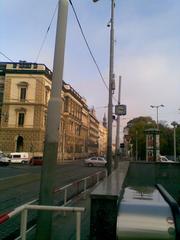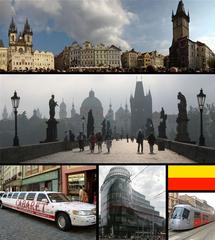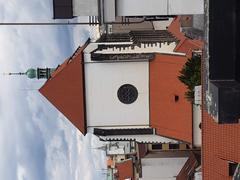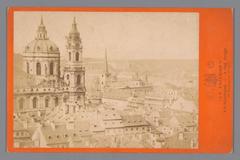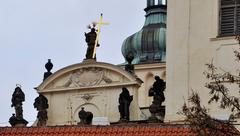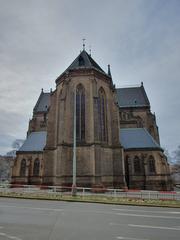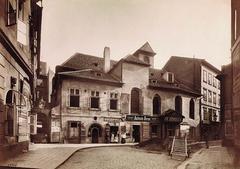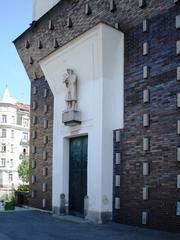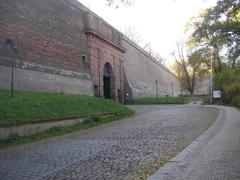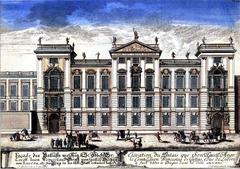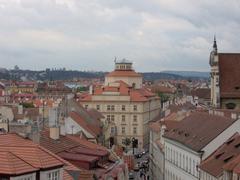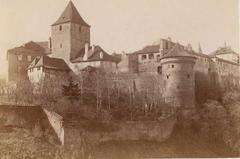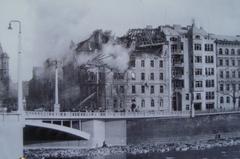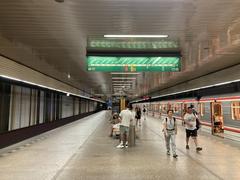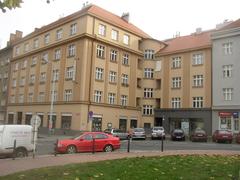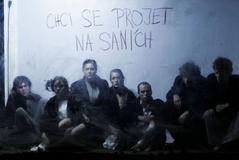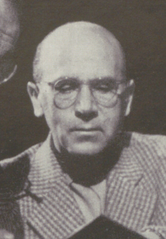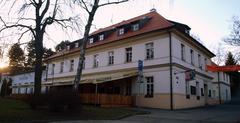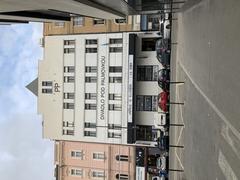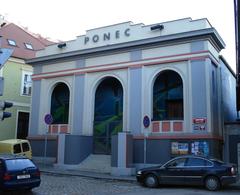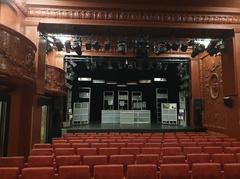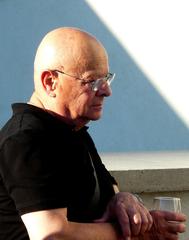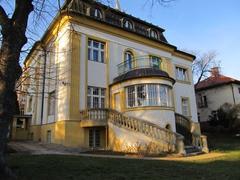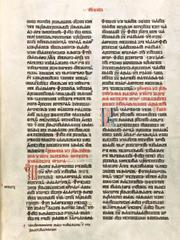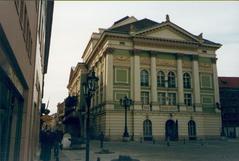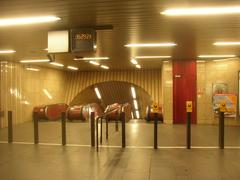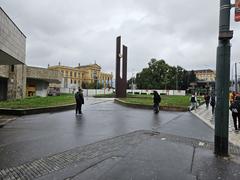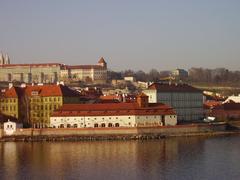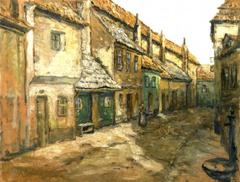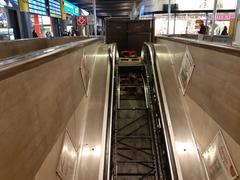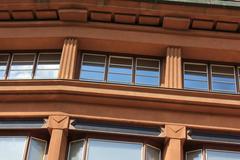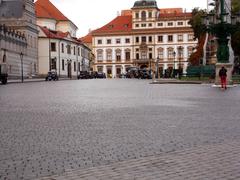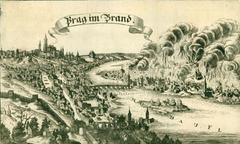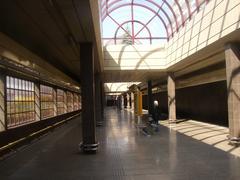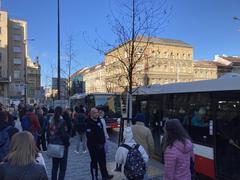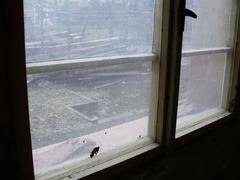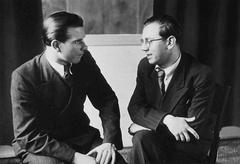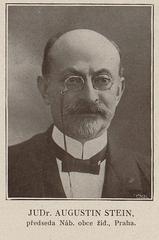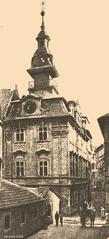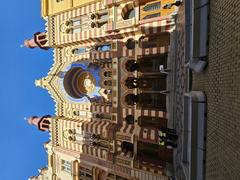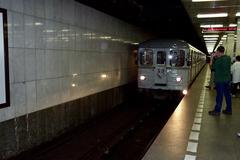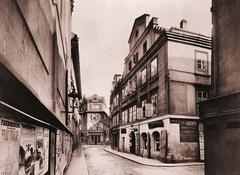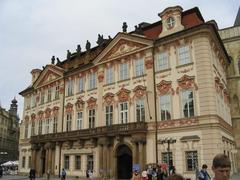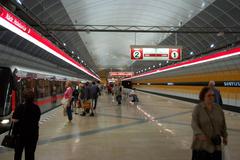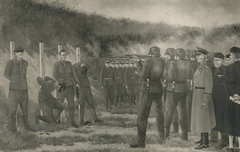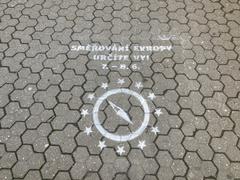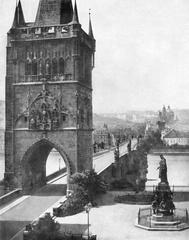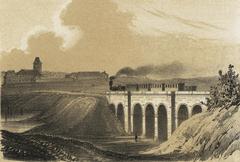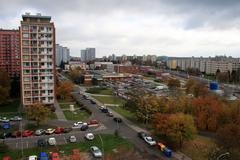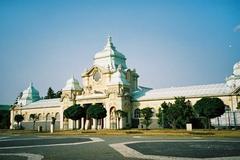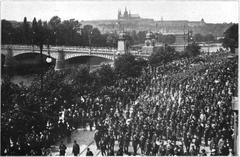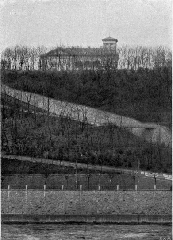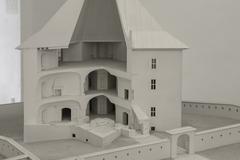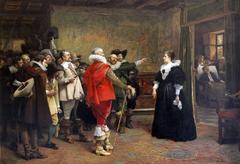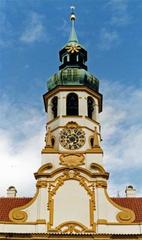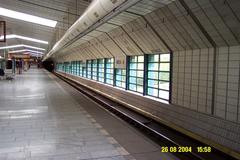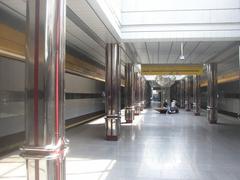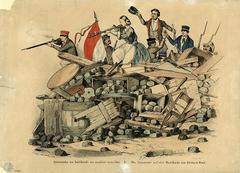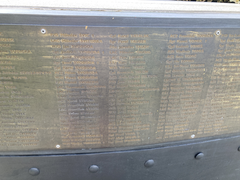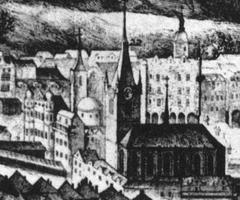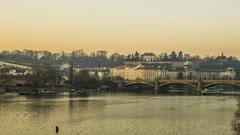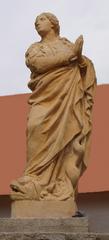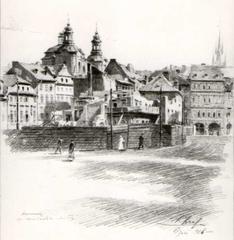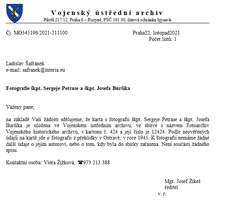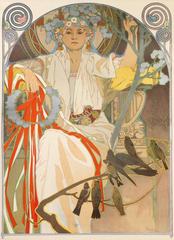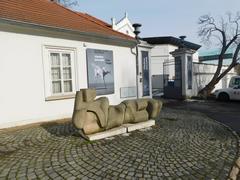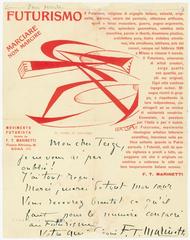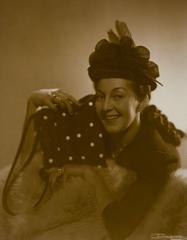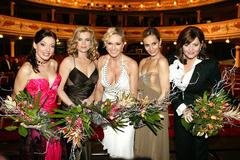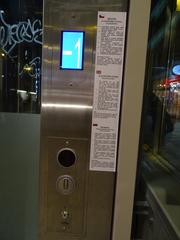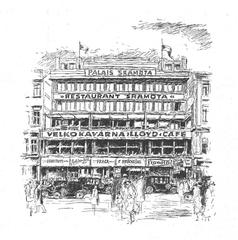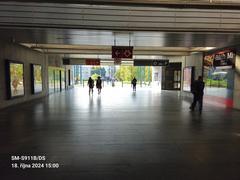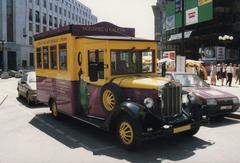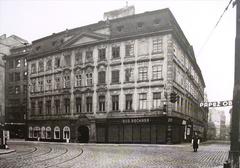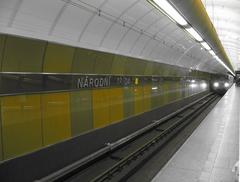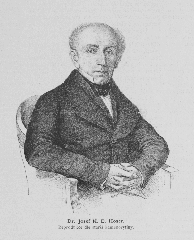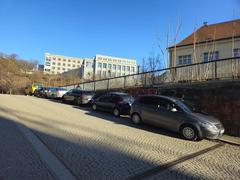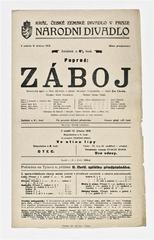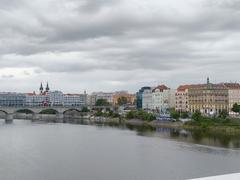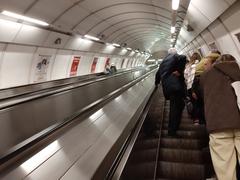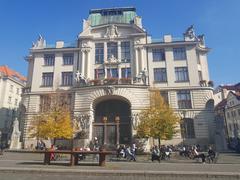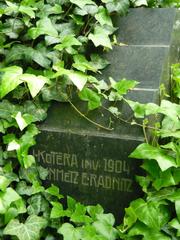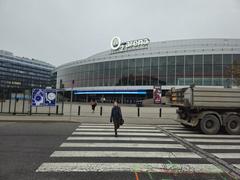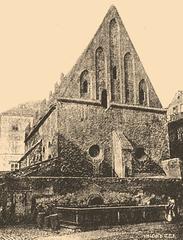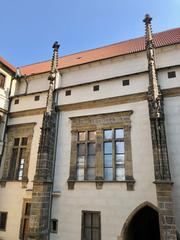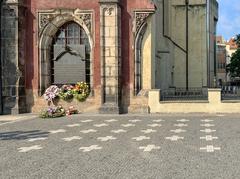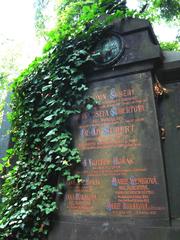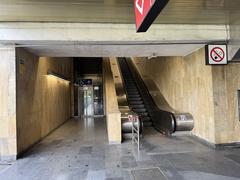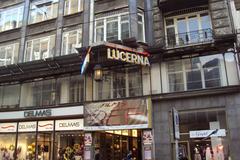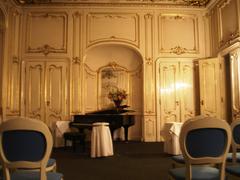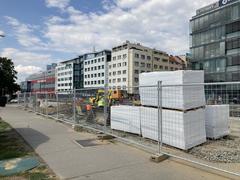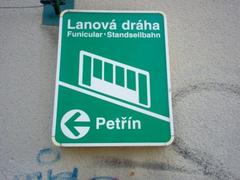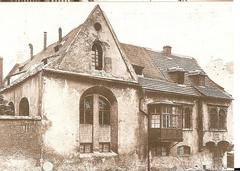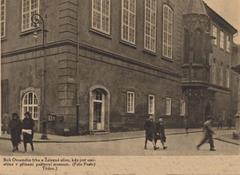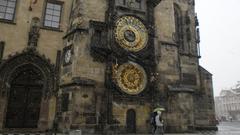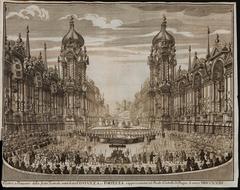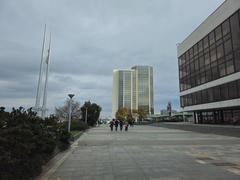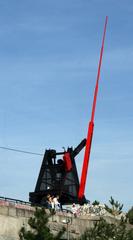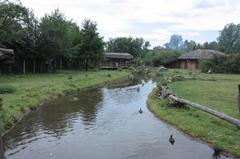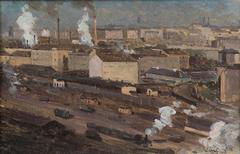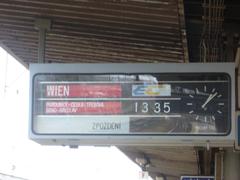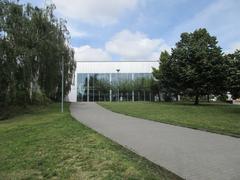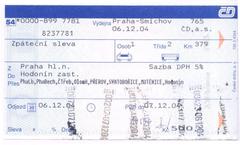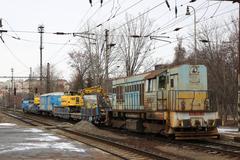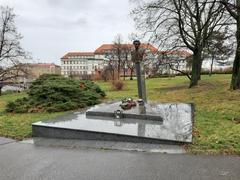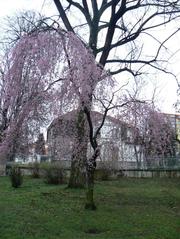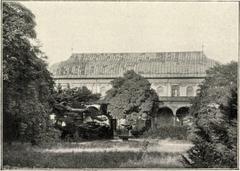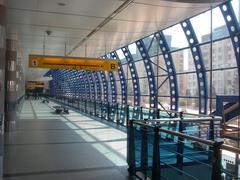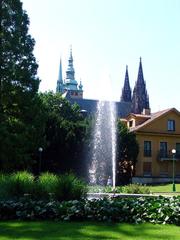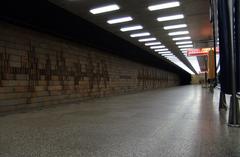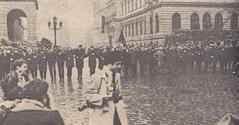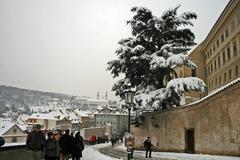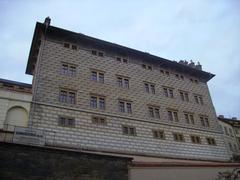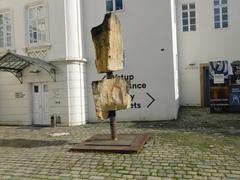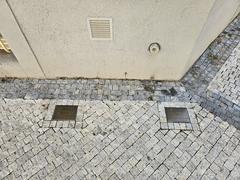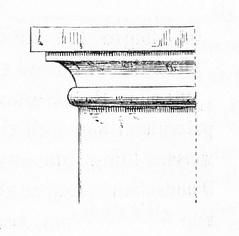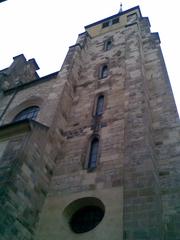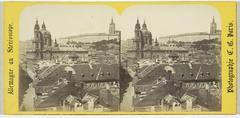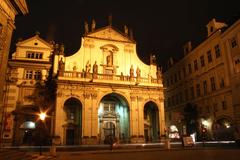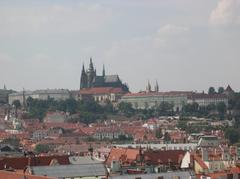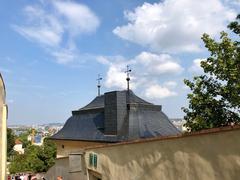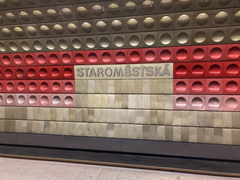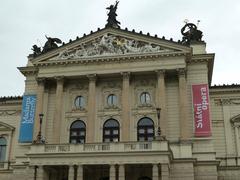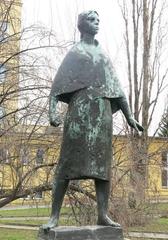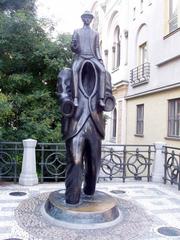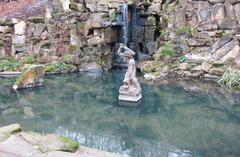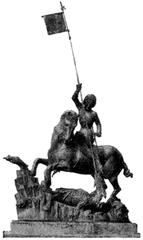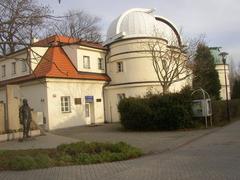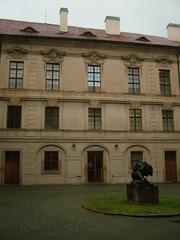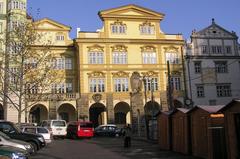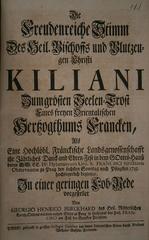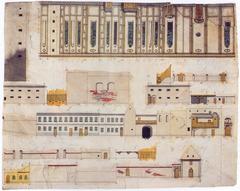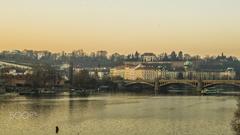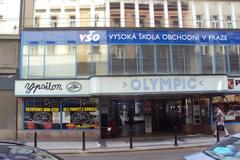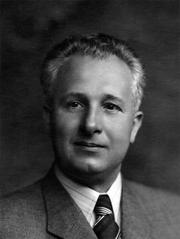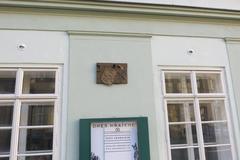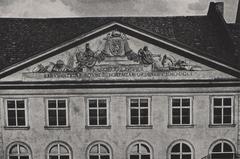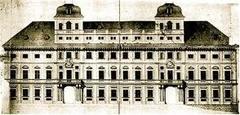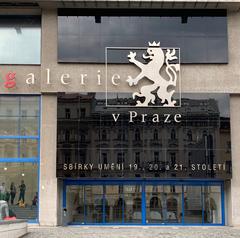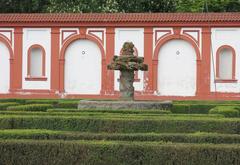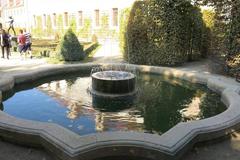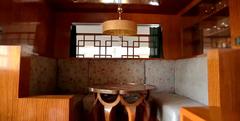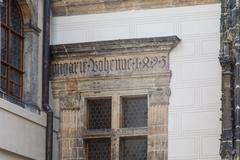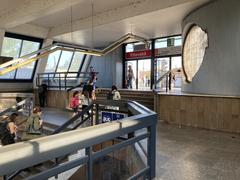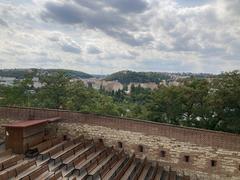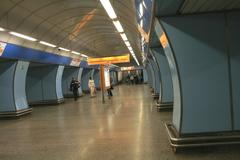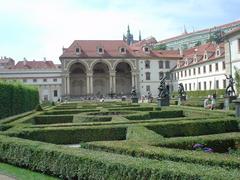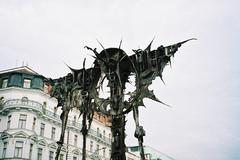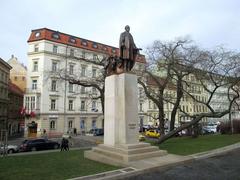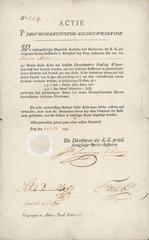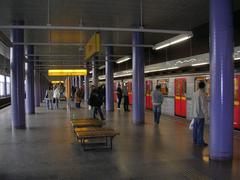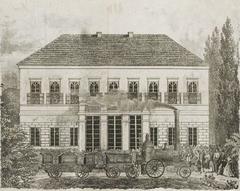Divadlo v Řeznické, Prague: Visiting Hours, Tickets, and Historical Significance
Date: 15/06/2025
Introduction
Divadlo v Řeznické is one of Prague’s most intimate and culturally significant theatres, renowned for its avant-garde programming, historical ambiance, and close connection between performers and audiences. Located at Řeznická 17 in the heart of Prague’s New Town, this theatre has evolved from a multifunctional social space into a vibrant cultural hub. Whether you are a theatre enthusiast, history buff, or traveler seeking an authentic artistic experience, Divadlo v Řeznické offers a unique insight into Prague’s dynamic cultural landscape. This guide provides comprehensive information on visiting hours, ticketing, accessibility, travel tips, and the theatre’s enduring historical significance.
For current schedules and updates, consult the official theatre website and trusted platforms such as Divadlo.cz and GoOut.
Table of Contents
- Introduction
- Historical Overview
- Visiting Information
- Special Events and Multidisciplinary Programming
- Visitor Tips and Practical Information
- FAQ
- Conclusion and Recommendations
- References
Historical Overview
Origins and Early Uses
The site of Divadlo v Řeznické reflects Prague’s evolving social and cultural fabric. The current functionalist apartment building, designed by Antonín Žižka and built in 1936–1937, replaced the earlier “Chaloupka” courtyard house, which once operated as a guesthouse, hotel, restaurant, and wine bar (theatre-architecture.eu; kultura.cz). During the First Czechoslovak Republic, the basement wine bar “V chaloupce” was frequented by actor Emil Artur Longen (cs.wikipedia.org). The building’s basement also served variously as a dance hall, WWII partisan shelter, youth hostel, and student dormitory in the decades that followed (kultura.cz).
Transformation into a Cultural Venue
The 1960s saw the basement space reimagined as a youth club and popular jazz venue, hosting ensembles such as Jazz Celula led by Laco Deczi. Following noise complaints and closure in 1979, the venue underwent soundproofing and transitioned to a university club, setting the stage for its future as a theatre (kultura.cz; theatre-architecture.eu).
Establishment as a Theatre
Divadlo v Řeznické began its theatrical era in 1980 as “Klub v Řeznické.” With no permanent ensemble, it hosted amateur groups, DAMU student productions, and experimental collectives, quickly gaining a reputation for eclectic, innovative programming. The intimate auditorium, seating 72–81, fostered a dynamic connection between performers and audiences (cs.wikipedia.org; kultura.cz).
Notable Personalities and Artistic Development
Dramaturge and director Doubravka Svobodová played a pivotal role in the theatre’s development, particularly in securing independence after the Velvet Revolution. From 1990 to 1993, the theatre functioned as a branch of Prague’s Obecní dům, achieving full legal and financial independence in 1994 and becoming a public benefit corporation in 2008 (kultura.cz). Notable Czech actors and directors—such as Oto Ševčík and Bára Hrzánová—have contributed to the theatre’s legacy. The theatre remains open to visiting artists and does not maintain a permanent ensemble (theatre-architecture.eu).
Programming and Artistic Direction
Divadlo v Řeznické is known for its experimental programming, ranging from contemporary Czech and international plays to innovative reinterpretations of classics. It regularly hosts children’s performances and art exhibitions in its foyer, reinforcing its identity as a multidisciplinary arts venue (kultura.cz). In recent years, the theatre has assumed greater production control, further refining its unique artistic vision (theatre-architecture.eu).
Architectural and Social Features
The theatre’s basement-level auditorium, with seating for up to 81, offers an immersive and intimate performance environment. The foyer functions as a gallery and event space, hosting press conferences, workshops, and openings. Since 2008, the theatre has emphasized accessibility and community engagement, reflecting its public benefit mission (kultura.cz; cs.wikipedia.org).
Visiting Information
Visiting Hours
- Box Office: Typically opens 1–2 hours before evening performances (from around 5:30 PM). For exhibitions and special events, check the theatre’s official website for updated hours.
- Performance Schedule: Most shows begin at 7:00 or 7:30 PM, Tuesday through Sunday. Weekend matinees may start at 4:00 PM. The theatre is closed on Mondays.
Ticketing and Reservations
- Purchasing Tickets: Tickets can be bought online through the theatre’s website or via GoOut. Limited tickets may be available at the box office.
- Prices: Standard tickets range from 200–400 CZK (approx. 8–16 EUR). Discounts are available for students, seniors, and groups upon presentation of valid ID.
- Advance Booking: Strongly recommended due to limited seating and high demand, especially for premieres and guest performances.
Accessibility
- Wheelchair Access: The theatre is generally wheelchair accessible, but due to the building’s historic nature, visitors with mobility needs should contact the box office in advance to ensure accommodations.
- Language: Most performances are in Czech, though some productions—particularly during festivals—include English surtitles or are non-verbal. Check specific event details on the website.
Getting There
- Address: Řeznická 17, Prague 1, 110 00
- Public Transport:
- Metro Line B (Karlovo náměstí, 5-minute walk)
- Tram lines 3, 9, 14, 24 (trams stop nearby)
- Parking: Limited street parking; public transport is recommended (Kudyznudy.cz).
Nearby Attractions
Divadlo v Řeznické is within walking distance of key Prague landmarks:
- Wenceslas Square
- National Museum
- Estates Theatre
- Old Town Square
- Charles Bridge
Numerous cafés and restaurants, such as Café Neustadt and Miyabi, are close by, making it easy to combine theatre with dining or sightseeing (Kudyznudy.cz).
Special Events and Multidisciplinary Programming
The theatre’s foyer regularly hosts art exhibitions, book launches, and literary evenings, contributing to its role as a multidisciplinary cultural hub. Annual events like “Noc divadel” (Night of Theatres) offer special programming, behind-the-scenes tours, and interactive workshops (Divadlo.cz; Kudyznudy.cz).
The theatre is also involved in community outreach with schools, senior groups, and the Klub mladého diváka (Young Audience Club), and frequently offers post-performance discussions.
Visitor Tips and Practical Information
- Arrive Early: Plan to arrive at least 15–20 minutes before showtime to enjoy foyer exhibitions and secure your seat.
- Dress Code: Smart casual attire is recommended; the atmosphere is relaxed yet respectful.
- Photography: Prohibited during performances. Photography in the foyer or during exhibitions may be allowed—ask staff for details.
- Duration: Most performances last 2–3 hours, including any intermissions.
- Community Engagement: Take part in post-show talks or foyer events for a deeper cultural experience.
Frequently Asked Questions (FAQ)
What are the theatre’s opening hours?
The box office opens 1–2 hours before evening performances; check the official website for exhibitions and event hours.
How do I buy tickets?
Tickets are available online via the theatre’s website, GoOut, or at the box office.
Is the theatre wheelchair accessible?
Yes, with advance notice. Contact the theatre for assistance.
Are performances in English?
Most are in Czech. Some international or festival events include English surtitles or are non-verbal—review event details.
Are guided tours available?
Not regularly, but special events sometimes include tours or workshops.
Conclusion and Recommendations
Divadlo v Řeznické is a cornerstone of Prague’s theatrical and cultural landscape, blending historical legacy with innovative artistic programming in an intimate setting. Its multidisciplinary approach, community outreach, and central location make it a must-visit for theatre lovers and cultural explorers. For the best experience, book tickets in advance, arrive early to enjoy foyer exhibitions, and engage with the theatre’s vibrant community. Stay updated through the theatre’s website, social media, and cultural apps like Audiala.
References
For further inspiration and practical information on exploring Prague’s arts scene:
